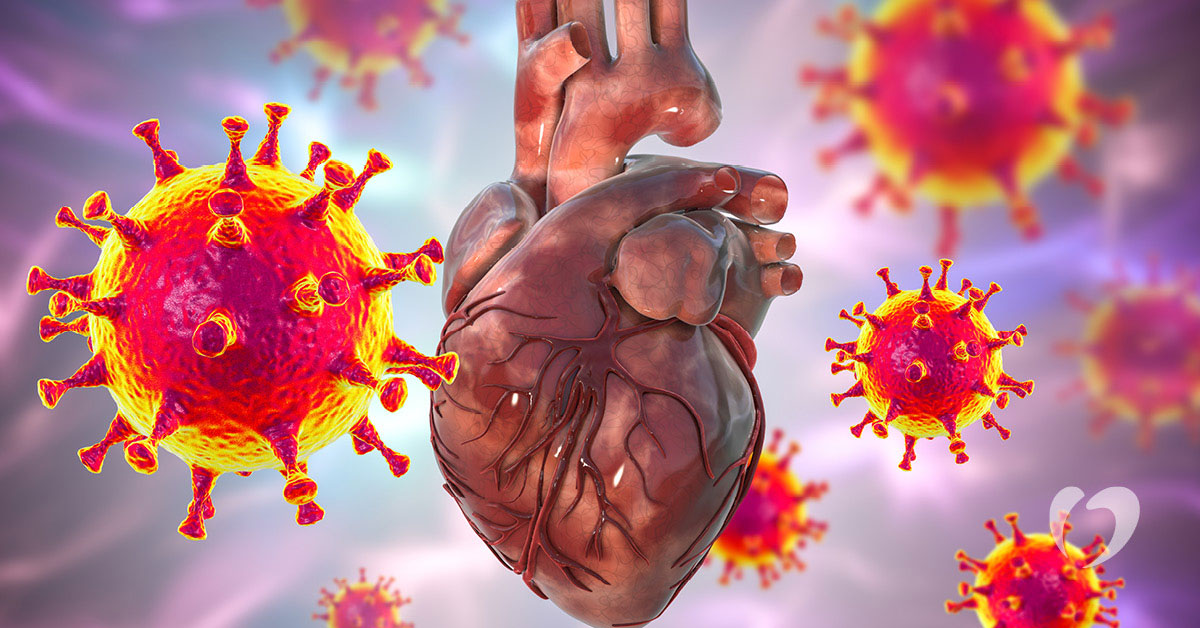Inflammation of the Heart

Inflammation of the heart has been in the news more regularly over the past two years because of its connection to COVID-19. Myocarditis, one specific type of inflammation, can occur following infection with COVID-19 and can also be a rare side effect of the COVID-19 vaccine.
In general, inflammation is the immune system’s response to injury or infection. It is an attempt to protect the body by ridding it of these perceived foreign invaders. Sometimes the body overreacts in its inflammatory response, which may begin to harm the body it seeks to protect.
Types of carditis
There are three types of inflammation of the heart: myocarditis, pericarditis, and endocarditis. Each refers to inflammation of slightly different parts of the heart. Myocarditis is inflammation of the heart muscle. Pericarditis inflames the pericardium, which is the tissue and fluid that surround the heart and keep it in place. Endocarditis, the rarest of the three, is an infection in the heart’s inner lining, often involving the heart valves.
What causes inflammation of the heart?
Many times, carditis is caused by a viral or bacterial infection. Myocarditis and pericarditis can be caused by coxsackie, influenza, or COVID-19. Inflammation of the heart can also be caused by autoimmune diseases, heart attack, or surgery. Endocarditis is typically caused by bacterial infection spilling into the blood stream.
What are the symptoms?
Symptoms of inflammation of the heart are similar to symptoms of other heart problems: chest pain, fatigue, shortness of breath, and arrhythmias. With pericarditis, the most common symptom is a sharp, stabbing pain in the left side of the chest. Because of the similarity in symptoms to other heart problems, any sudden pain in the chest or other heart symptoms should be evaluated immediately for treatment.
How is carditis diagnosed?
Inflammation of the heart is diagnosed through a physical exam and questions about previous inflammation, infection, or recent viruses. If a doctor suspects a type of inflammation, they may order:
- Heart imaging, such as a cardiac MRI or echocardiogram
- Biopsy of heart material
- Blood tests to show inflammation
How is inflammation of the heart treated?
The location and severity of the inflammation will determine how it is treated. Often, cases of myocarditis and pericarditis are mild and resolve on their own. Rest is important for the body to fully heal, but many cases heal without intervention. Most of the rare cases associated with a COVID-19 infection or vaccine have been mild.
More severe inflammation may be treated with anti-inflammatory medications, as well as medication to counter any arrhythmia or heart failure that may accompany severe inflammation. If a bacterial infection is at the root of the inflammation, antibiotics may be used to treat the underlying cause. Endocarditis, while rare, can also be very serious due to its potential to damage the heart valves. In the case of damaged valves, surgery may be necessary.
If you are experiencing symptoms that may be caused by inflammation of the heart, contact Oklahoma Heart Hospital to schedule an appointment with one of our specialists.
